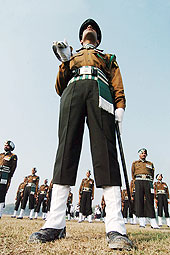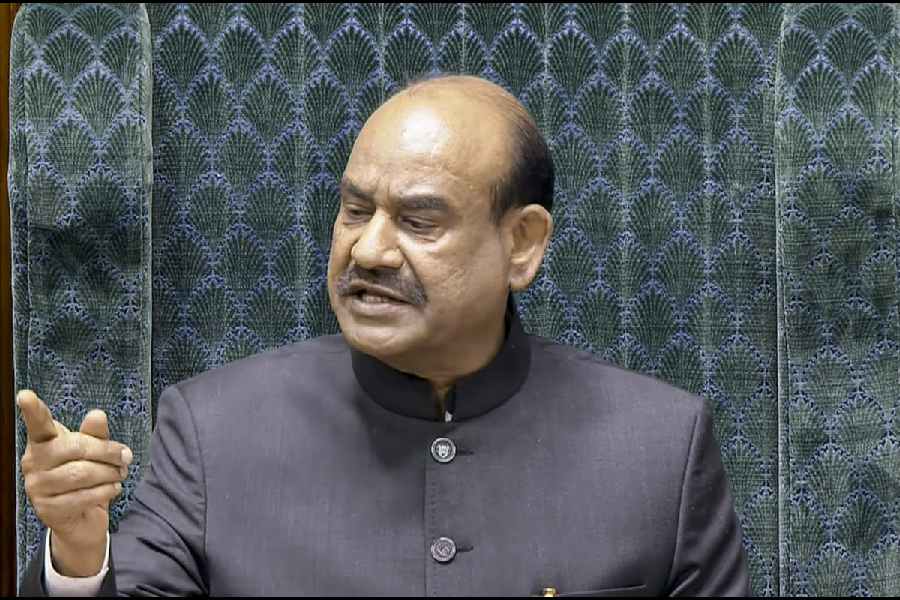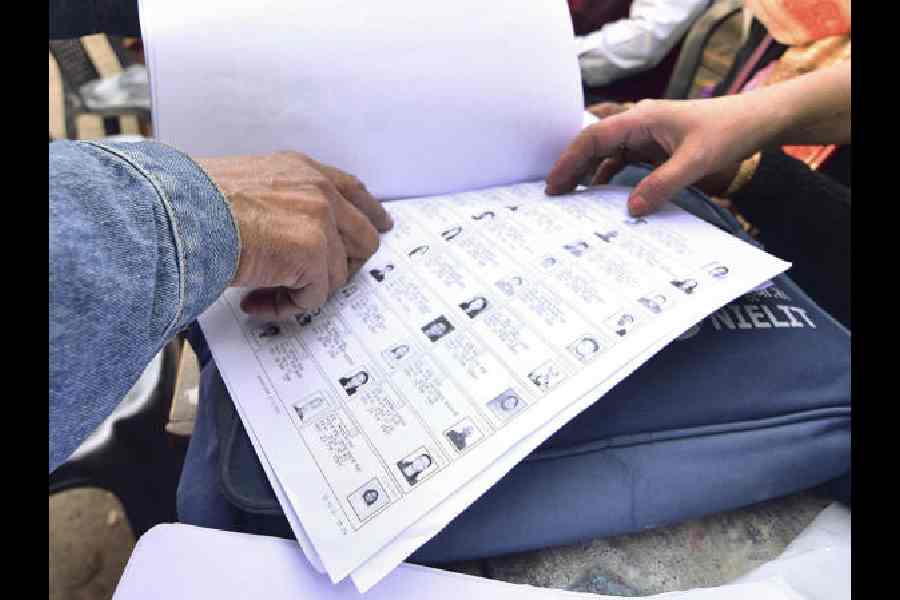 |
When a couple of army officers were arrested by the police at the Park Street police station on the night of January 31, 2006, for allegedly ‘misbehaving’ at a party, questions were raised about the legality of the arrests. Among other things, the army accused the police of not adhering to the law of informing the arrested person’s superiors, which it claimed was a prerequisite for all arrests pertaining to members of the armed forces.
Of course, the commissioner of police, Prasun Mukherjee, defended his force. “We had no idea that the two men were army officers,” Mukherjee said, adding, “They kept their identities secret. They disclosed it only after being put inside the lock-up.” Still, the entire episode has triggered off questions about what exactly the laws pertaining to the arrest of members of the armed forces are.
First of all, as Joymalya Bagchi, a criminal lawyer of the Calcutta High Court, points out, “There are certain embargoes placed on the arrest of an army official, especially under certain conditions.” These are spelt out in Article 45 of the Criminal Procedure Code (CrPC), which deals with “the protection of members of the armed forces from arrest.”
According to the CrPC, “Not withstanding anything contained in Sections 41 to 44 (which deal with the powers of arrest vested upon the police, etc), no member of the armed forces of the Union shall be arrested for anything done by him in the discharge of his official duty, except after obtaining the consent of the central government”.
Bagchi points out that the crucial words here are “in the discharge of his duty.” This means that any action, which could fall under the category of ‘an act of crime’ under civil law, may not be applicable in the case of an army officer if its commission was either a result of or was necessitated by the official’s attempt to carry out his duty.
“For instance, if an army officer runs over a pedestrian or mows down a field full of crops in a village while rushing to the border in his vehicle to deliver essential supplies, he cannot be arrested by the tenets of civil law,” says Bagchi.
So is an army officer exempted from arrest for any act of crime committed when on official duty? “Not if he commits what is perceived to be an act of crime that cannot be justified as having been a result of or necessitated by the performance of his duty — such as, say, rape or robbery,” says Bagchi.
Corroborating this, Colonel (retd) Amiya Ranjan Chakraborty says, “While there are stringent constraints as far as the arrest of members of the armed forces is concerned, rape and murder are among the crimes for which a person can be arrested.”
What about the legalities of arresting a member of the armed forces when not on duty? According to Bagchi, “Anyone deemed to be in the act of committing a crime, or is suspected to have committed a crime, is liable to be arrested by the police in order to prevent further commission of crime by the person, even if he belongs to the armed forces.”
As far as arrest procedures are concerned, the essential difference between an ordinary citizen and an off-duty army officer is that in the case of the latter, it is mandatory that the army command be informed, points out Colonel Chakraborty. He clarifies that this is because the army reserves the right to decide whether the accused person should be handed over to it, so that he could be tried under army law — in other words, court martial him — or be prosecuted under civilian law.
Bagchi further dispels misconceptions about any “lenient” stance that the army may take if trying personnel in its own court, “The army is an absolute disciplinary force and any act of aberration is treated with the utmost seriousness. Punishment can range from dismissal from service to life imprisonment and even the death sentence.”
He points out that under court martial, where the charges are brought by the army, the options for appeals are also limited. While in an ordinary trial an accused can make several appeals (if he loses in a lower court, he can appeal to all the subsequent higher courts), an army officer under court martial can only make one appeal, that is, to the central government. And this appeal can be dismissed, according to Bagchi, “in a one-line statement even, without so much as an explanation”.











